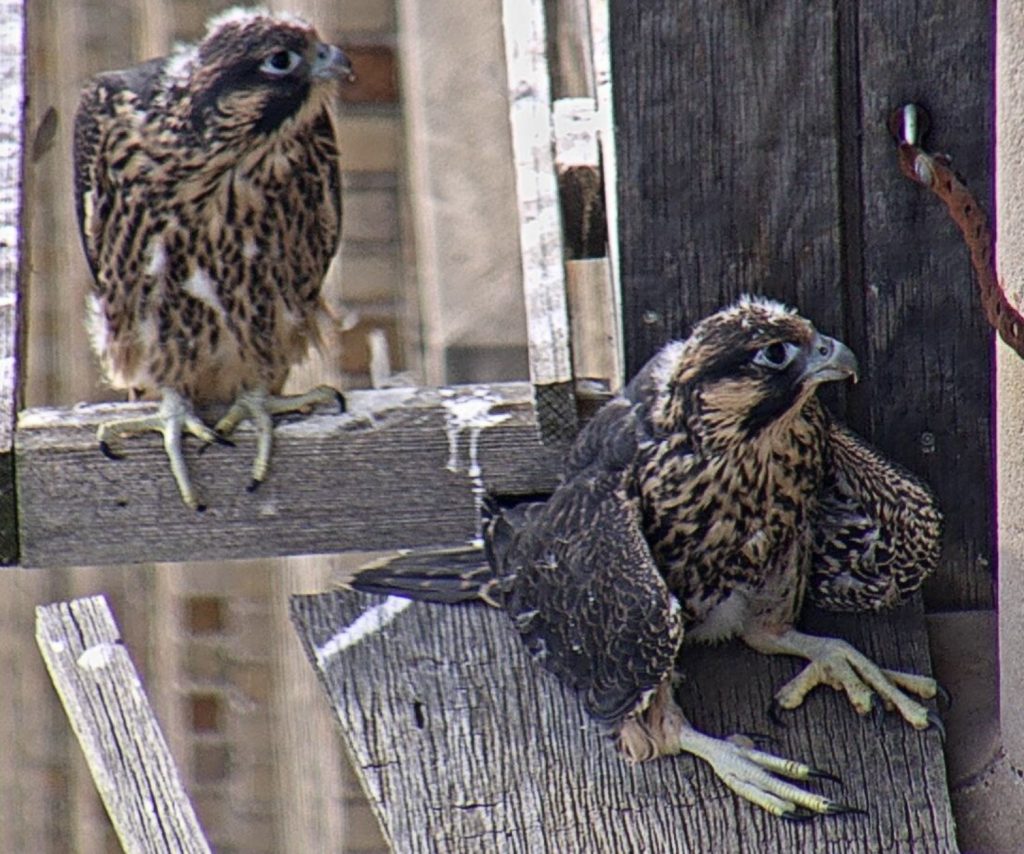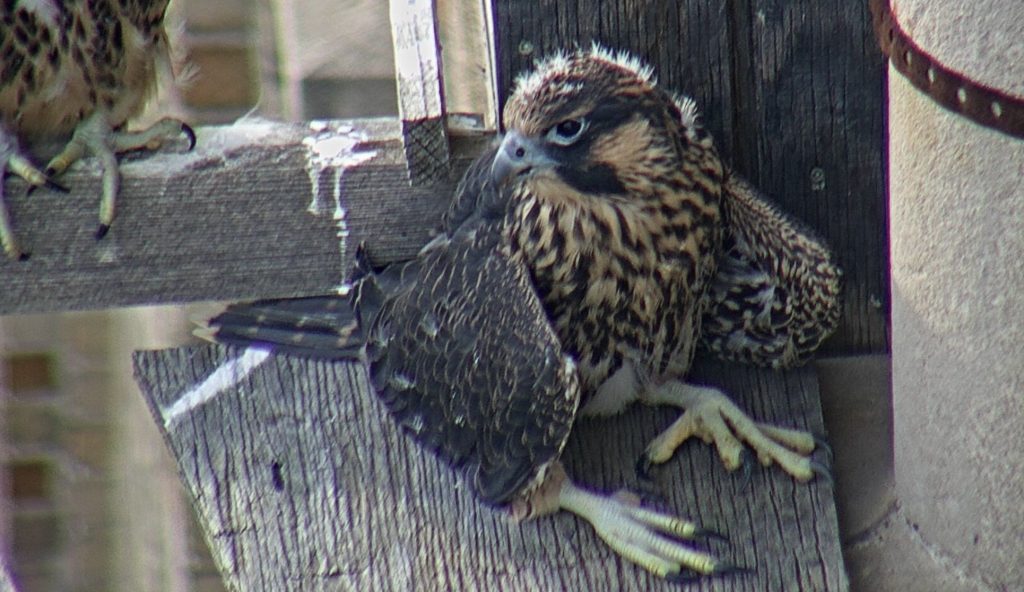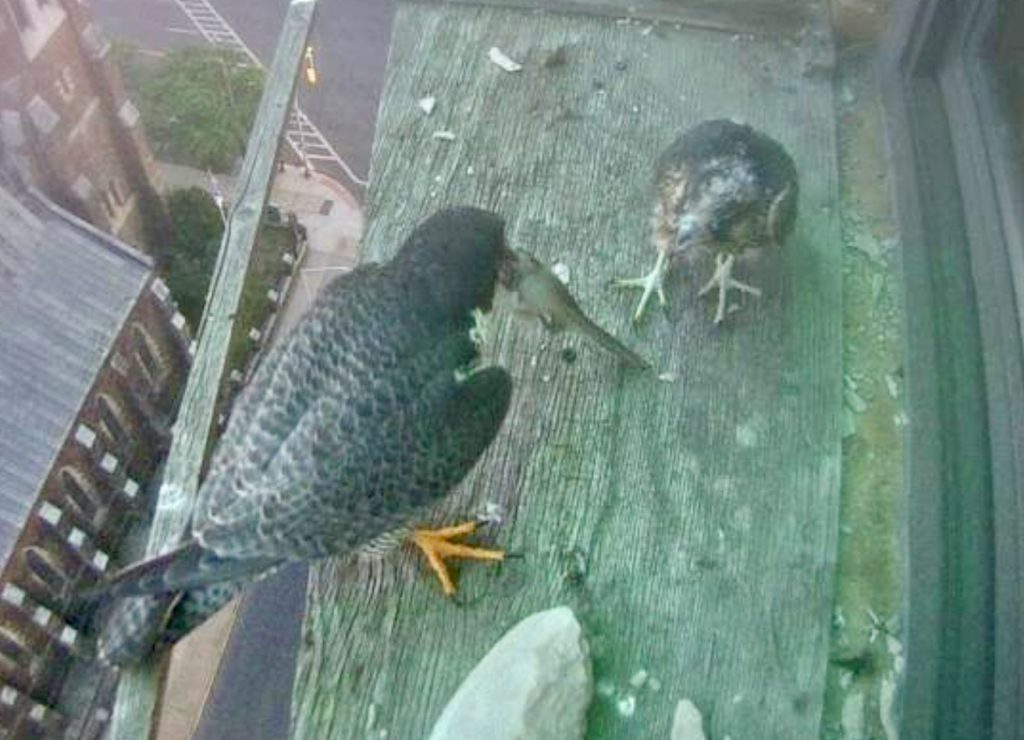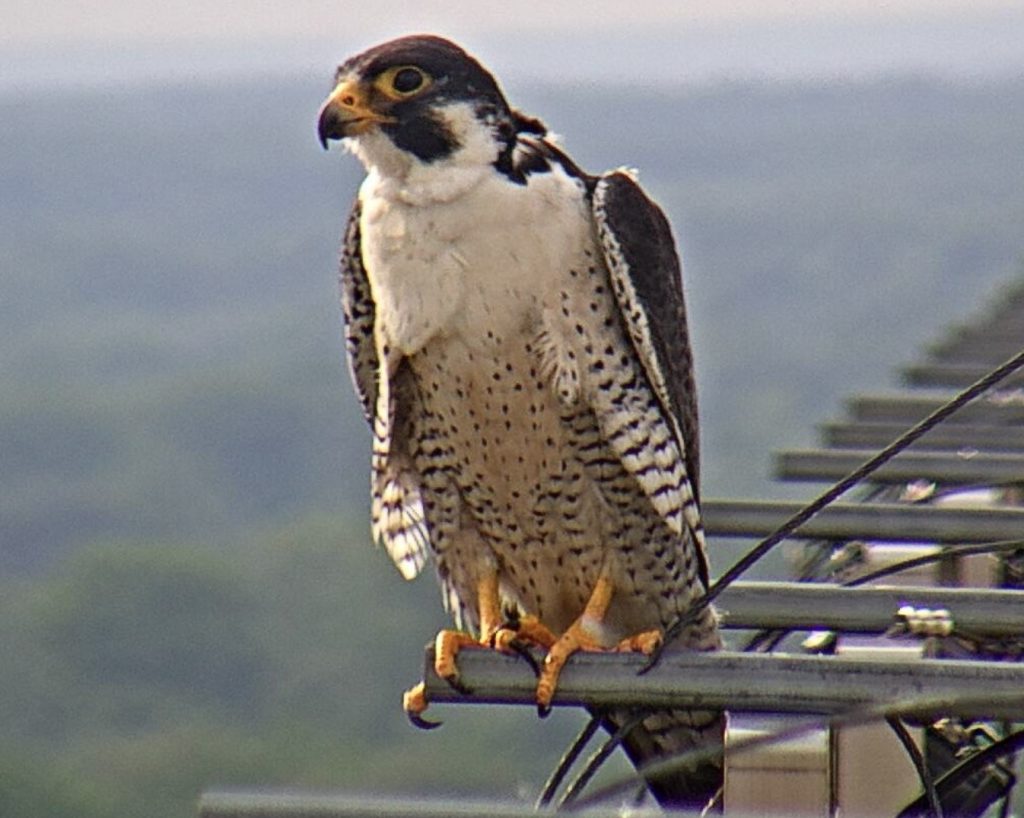
Update for Wednesday, June 5, 2024
At the Utica nest we have often seen close bonds develop between nestling/fledgling Peregrines. Friendships formed among sibling Peregrines play a significant role in establishing cooperative relationships in their adult lives, especially among mated pairs. These early bonds, developed through shared experiences and mutual dependence, lay the groundwork for the complex social behaviors necessary for successful breeding and hunting. During the nestling stage, young Peregrines engage in activities that foster social cohesion, such as competing for parental attention, alternating wing exercising, and engaging in play. These interactions are crucial for developing communication skills and establishing social hierarchies. Sibling rivalry, while competitive, also teaches conflict resolution and cooperation, as nestlings learn to share limited resources and space within the nest.

As the peregrines fledge and begin to explore their surroundings, these early bonds are reinforced. Fledglings often spar together, practice hunting, and repel intruders together. These cooperative interactions not only improves their survival rates but also strengthens their social bonds. Through these shared activities, fledglings develop a deep understanding of each other’s strengths and weaknesses, which becomes essential in forming successful partnerships in adulthood. When these Peregrines reach maturity and begin seeking mates, the foundation of trust and cooperation established during their nestling and fledgling stages becomes invaluable. Mated pairs must work closely to defend their territory, select and defend nest sites, and raise their young. The ability to communicate effectively, coordinate efforts, and support one another is crucial for the success of these tasks. Furthermore, the cooperative behaviors learned in early life help mated pairs manage the demanding process of raising offspring. Both parents must share responsibilities, such as incubating eggs, hunting for food, and protecting the nest. The trust and teamwork developed during their formative years enable them to balance these duties more effectively, ensuring higher reproductive success and the survival of their chicks.

